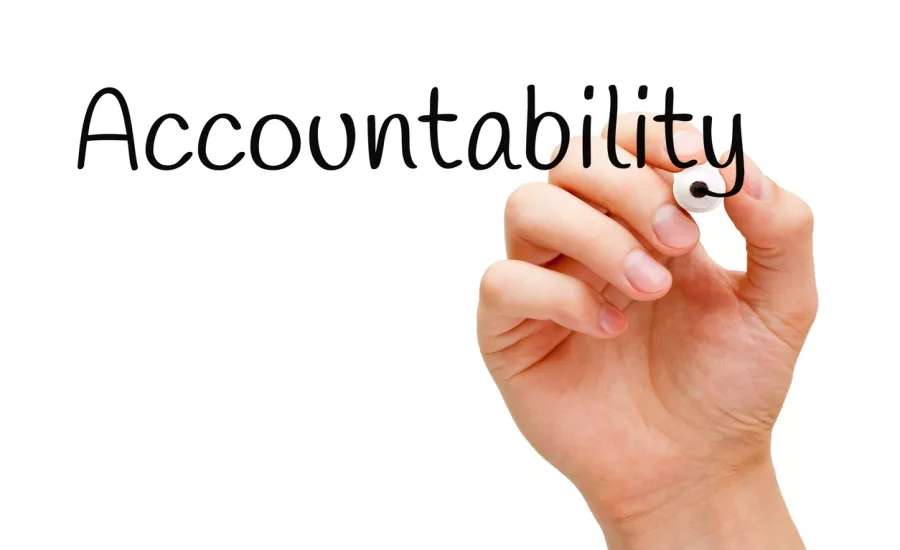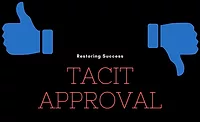Restoring Success: The Year of Accountability

“Accountability breeds response-ability.” Steven Covey
Because nearly 50 percent of us make resolutions every New Year and statistically most of us fail, let us start the New Year off with professional development goals instead: Read more, take a class, improve work-life balance, be more organized, better time management, learn to delegate, and/or hold people accountable.
Somewhere along the line, the concept of accountability has gotten a bad rap. Many managers will shamefully state with their heads held low that they must do better job at holding people accountable. When we hear the word “accountable”, many of us immediately think of telling someone that they did something wrong.
I have yet to see a manager beaming with a smile from telling someone that they did not do their moisture map properly, issuing a disciplinary notice for tardiness, or addressing a workmanship issue.
However, I know many managers who would consider it a good day because they had the opportunity to promote someone, give someone a raise, or tell someone they are doing a great job.
Accountability is all about responsibility and all are as responsible for positive outcomes as they are negative outcomes. It is a disservice to someone in your reporting line when you do not hold them accountable for something considered negative in the same manner that we are willing to hold them accountable for something positive. How can one be credited with a positive outcome if they are not credited with a negative outcome? Imagine saying to a crew chief, “You did a great on the Jones job, the customer was happy, the job was completed within the hours allowed and on schedule. It was not your fault that the Smiths were not happy, that the job ran 100 hours over target and it was completed two months past the scheduled due date.”
Top performers and the kind of people we want to build a company around want to be held accountable. They want to know what they did wrong so they can improve or not make the same mistake again. They want to know what they are doing well and their strengths.
Harry S. Truman’s famous statement “the buck stops here” is the tag line of ultimate responsibility. People admire those who take ultimate responsibility for actions and decisions.
Everyone in an organization, technician to president, is responsible and accountable to something and someone. Here are some tips to make 2017 “The Year of Accountability” in your organization:
- Accountability Culture: Make being held accountable a positive concept in your organization. Start when you a hire a new person. Let them know they will be held accountable and responsible for both positive and negative outcomes. When they are held accountable for something considered negative, it is in the context of helping them improve professionally. Managers should constructively and positively address a corrective or disciplinary action, allowing the team member to be held accountable for a negative outcome and yet still feel like a valued and important member of the team. It starts at the top. The leader must be willing to accept responsibility of the organization, department, team, etc. As a Chief Operating Officer, I will without shame take responsibility for any failure, deficiency, or shortcoming of the organization, and then journey to improve or fix it.
Failure to address a negative behavior or actions can lead directly to tacit approval which means that silence or disregard of the matter is actually implying your support and approval of the behavior.
-
“The Buck Stops Here”: Let people take ownership and experience the pride and responsibility of embracing a “the buck stops here” mentality. Those who are finger pointers and don’t want to take the blame for something when it goes wrong may not be the right people in your accountability organization.
- Outcomes and expectations: Each person should have an idea and understanding of what outcomes and expectations to which they are being held accountable. Do not get overwhelmed by formalizing all outcomes and expectations. Company rules, customer service standards, quality objectives and metrics may be some of the outcomes and expectations you already have in place. The key is to hold people accountable to the outcomes and expectations. A few examples:
- Everyone in your company probably knows what time they are expected to show up for work. Award, and discipline, punctuality and attendance issues across the board - holding everyone, yourself included, at the same level of accountability.
- Vehicles should be clean and organized. If the vehicle meets the expectation, recognize the positive and if it does not, address it immediately.
If you hold someone accountable to an expectation they did not know about, it should be considered a great opportunity to communicate and get on the same page.
-
Processes: Develop and communicate a process that gives managers the tools to hold the team accountable. The process should be communicated to the team and easy to understand.
- Invest in Accountability: Be resolved in committing the time and resources in a system and culture of accountability. Not all managers are equipped to hold people accountable in a manner that creates positive results. An investment in time, energy, training, and resources may be needed.
Looking for a reprint of this article?
From high-res PDFs to custom plaques, order your copy today!









